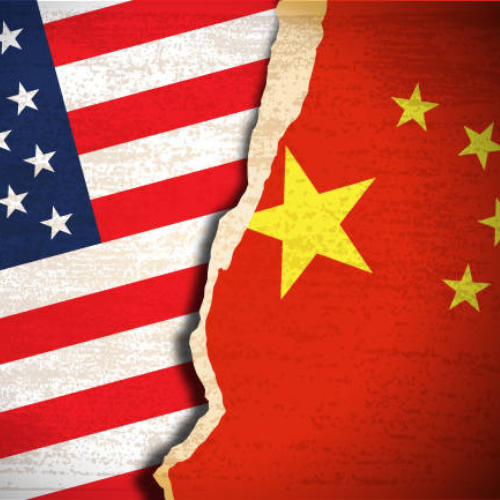In recent weeks, the Biden administration has unveiled the largest and most comprehensive set of sanctions on China’s semiconductor industry. These sanctions focus on Chinese companies that make the equipment and materials essential for producing computer chips. The U.S. government hopes that these restrictions will slow down China’s efforts to advance its semiconductor sector, a critical part of the country’s technological development. However, Chinese companies are now claiming that the impact of these sanctions will be much less severe than expected, thanks to years of preparing for such actions.
Sanctions Target Key Equipment Manufacturers
The new sanctions affect a wide range of Chinese companies involved in the manufacturing of semiconductor equipment. These companies are responsible for vital tasks in chip production, such as etching, tracking, photoresist removal, and packaging testing. They also play a crucial role in other areas like thin film deposition, ion implantation, and chemical mechanical polishing (CMP).
Some of the largest Chinese semiconductor equipment manufacturers impacted by these sanctions include companies like Naura, Piotech, ACM Research, and Kingstone Semiconductor. These companies are well-known for their work in developing and producing the tools needed to make chips. However, despite the heavy restrictions from the U.S., these companies are claiming that the effects on their operations will not be as bad as initially feared.
Hong Kong is Key Link in Illicit Semiconductor Flows to Russia Amidst Growing US Sanctions
Companies Say They’ve Built Local Supply Chains
Many of the companies hit by the new sanctions say that they have spent the last four or five years focusing on building their own supply chains in China. This effort to localize production means that a significant portion of their key components and materials no longer depend on suppliers from other countries, including the U.S.
For example, Naura, a leading Chinese semiconductor equipment manufacturer, stated that around 90% of its revenue comes from China, with less than 10% coming from other countries. This heavy focus on the domestic market has allowed Naura to remain less affected by the new U.S. sanctions. Other companies like Hwatsing and Piotech also reported similar results, with many of their critical parts now being made within China, reducing their reliance on foreign suppliers.
US Semiconductor Sanctions Spark Fierce Retaliation Threats from China
Hwatsing, another Chinese semiconductor manufacturer, pointed out that most of its key components are now produced within China. As a result, the company said that it hasn’t seen significant impacts from the sanctions so far. Piotech, a well-established company in China’s semiconductor equipment industry, added that the sanctions would only have a minor effect on their operations. The company emphasized that its primary market is China, and it has built a stable supply chain by finding multiple sources for important components and materials.
Companies Confident in Their Ability to Adapt
Other companies, like Kingsemi and AccoTest, have echoed similar sentiments. Kingsemi is still analyzing the long-term effects of the sanctions, but the company is confident that its localized solutions for core components will help minimize the impact. Kingsemi also noted that it has a small number of overseas clients, meaning that most of its business comes from China.
AccoTest, which used to rely on American suppliers, revealed that after working to localize its supply chain, it is no longer dependent on foreign sources for many of its key components. The company now finds that the U.S. export control regulations do not significantly affect its operations. Similarly, Skyverse, another Chinese company, had already anticipated the possibility of these sanctions years ago. It had focused on building self-sufficiency by producing all of its key components in-house. As a result, Skyverse feels well-prepared to handle the current sanctions, with most of its business targeting the domestic Chinese market.
The Bottom Line
Despite the extensive nature of the new U.S. sanctions, Chinese semiconductor companies are largely reporting that the impact will be minimal due to years of preparation and localizing their supply chains. These companies have worked hard to reduce their dependence on foreign suppliers, particularly those from the U.S., which has helped them weather the effects of the latest round of export controls.
By focusing on domestic production, they have ensured that their key components are self-sufficient. This has allowed them to remain competitive in China’s growing tech market, even as the U.S. continues to impose strict sanctions aimed at curbing China’s technological progress. While the future impact of these sanctions remains to be seen, for now, many of China’s top semiconductor manufacturers are claiming that they are well-positioned to navigate the challenges posed by these new restrictions.


